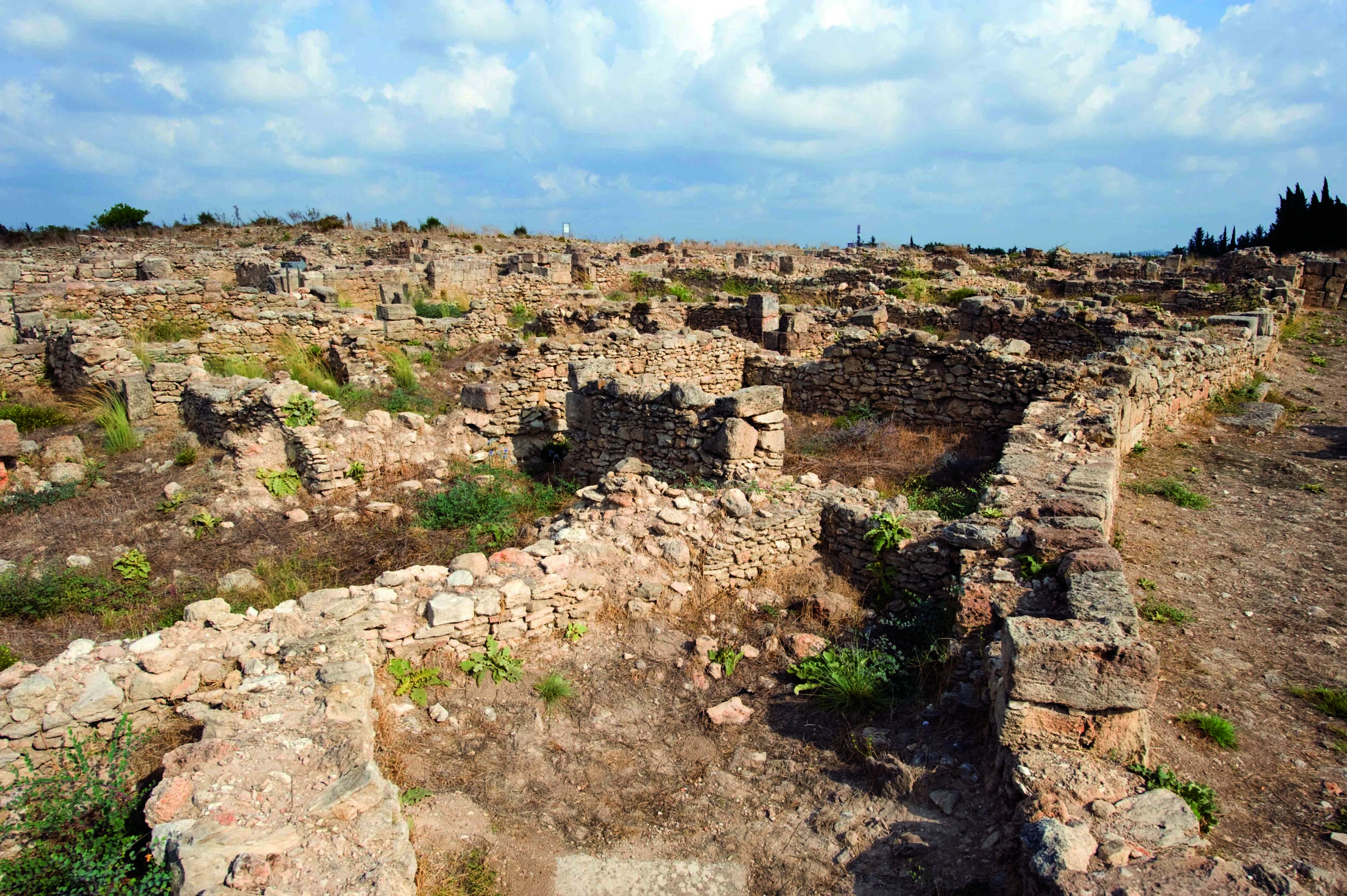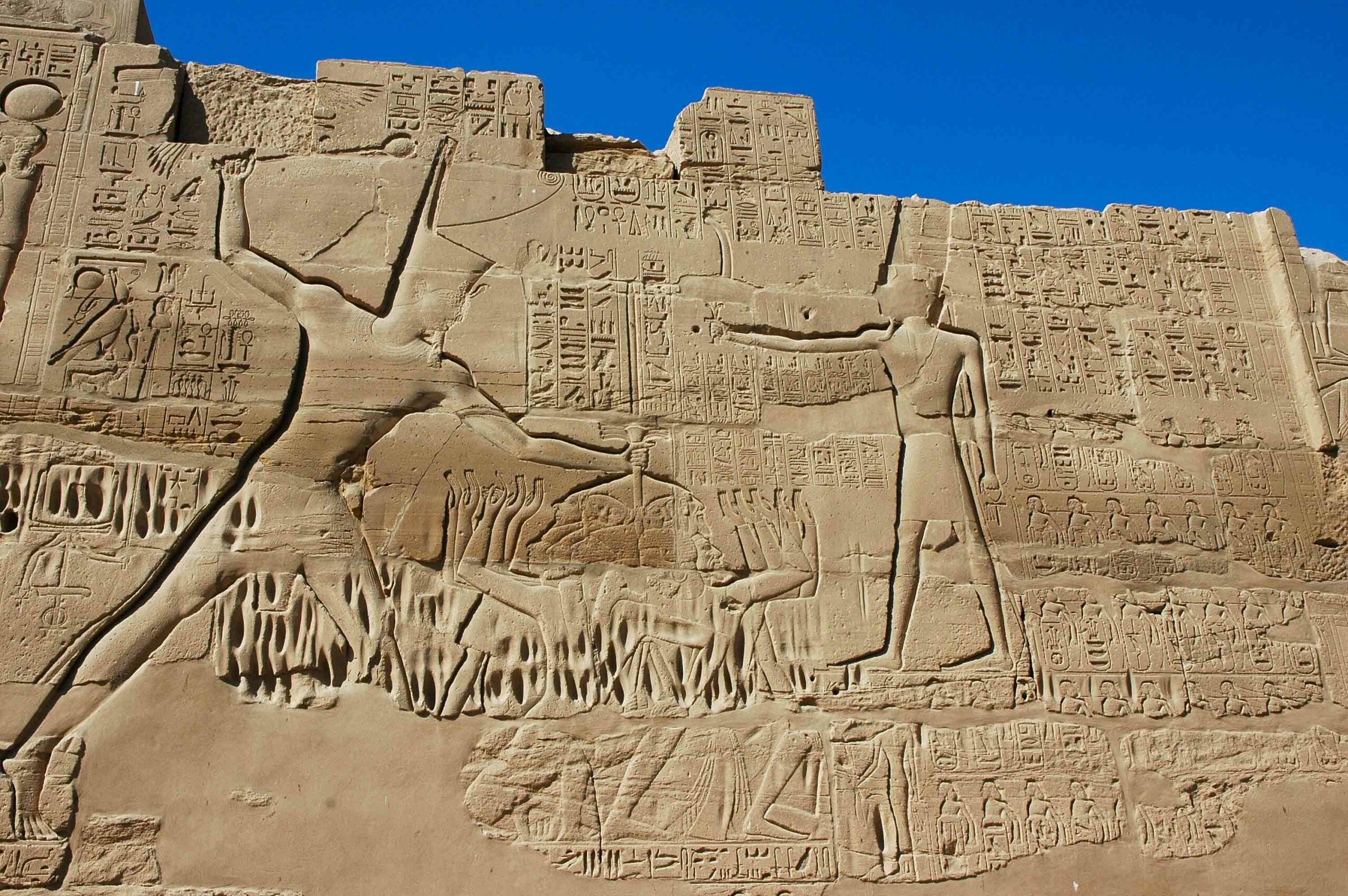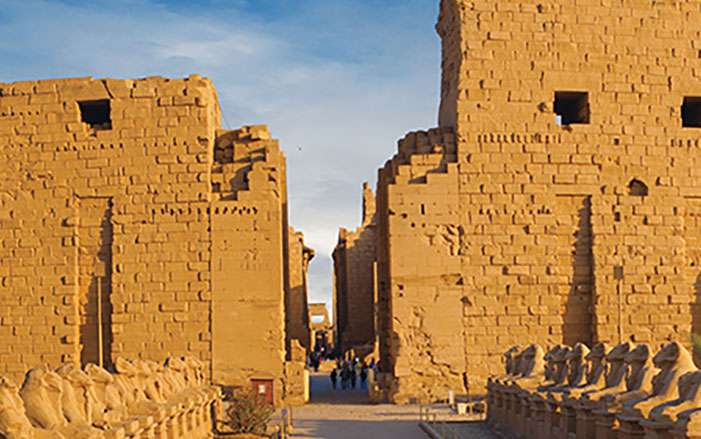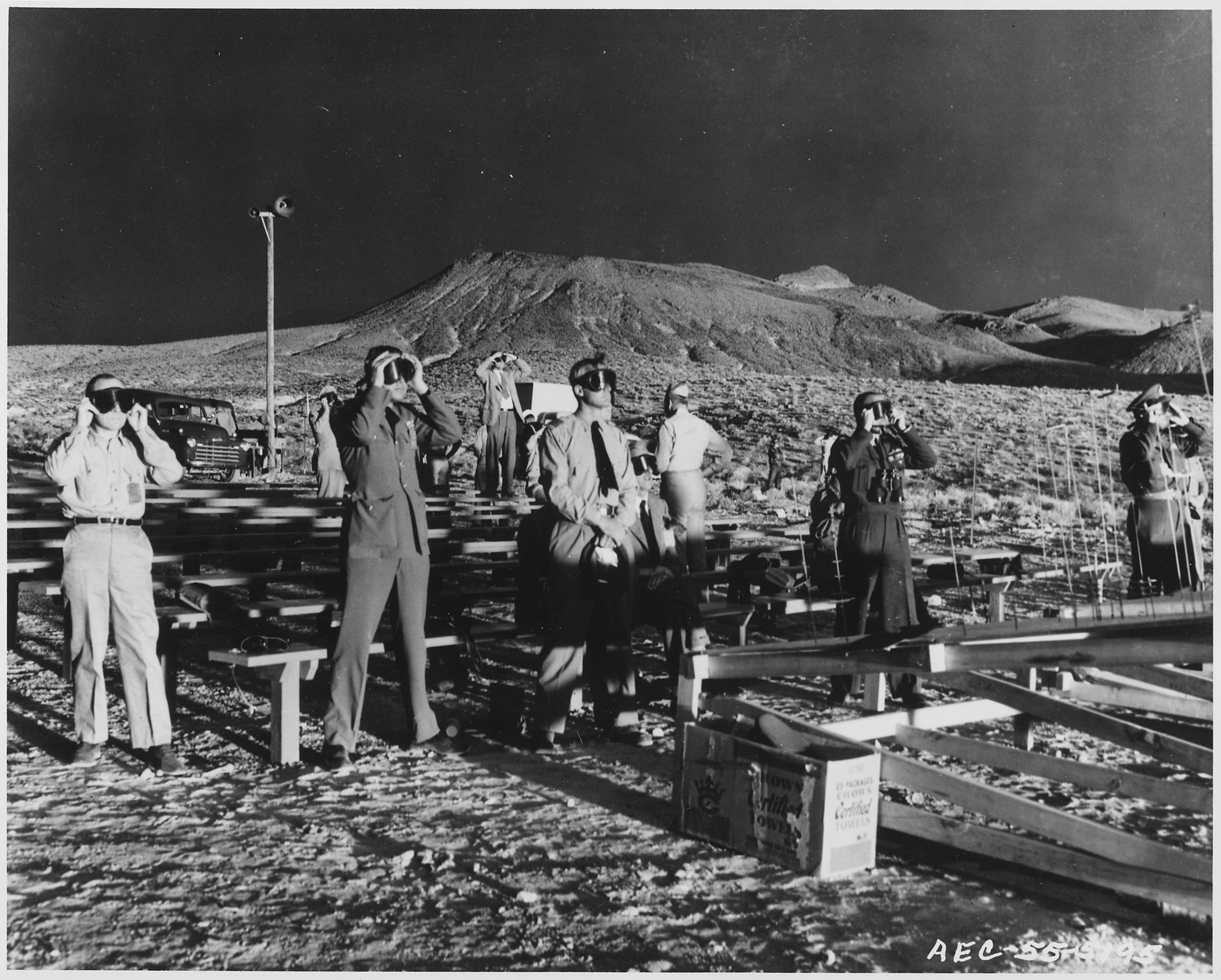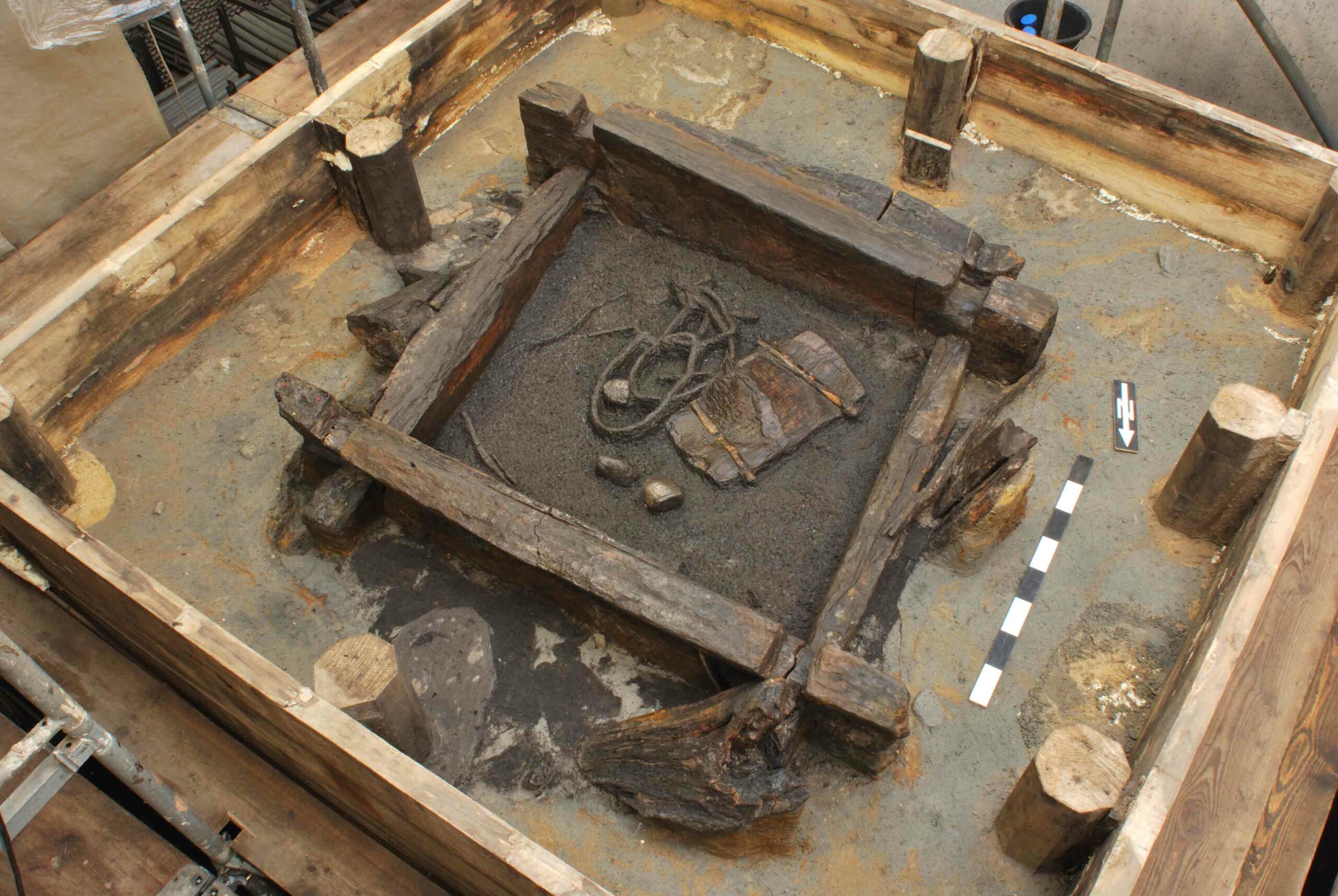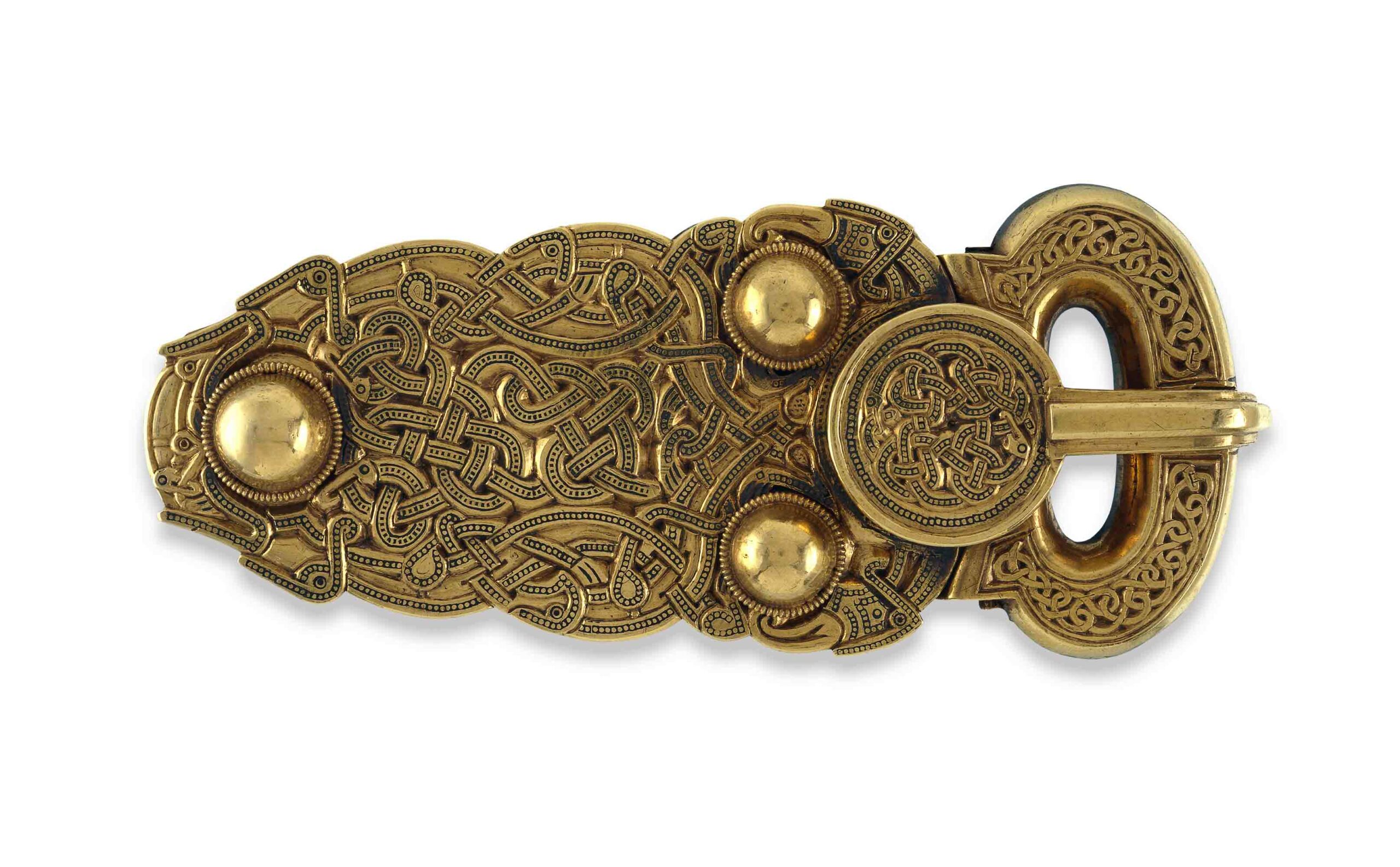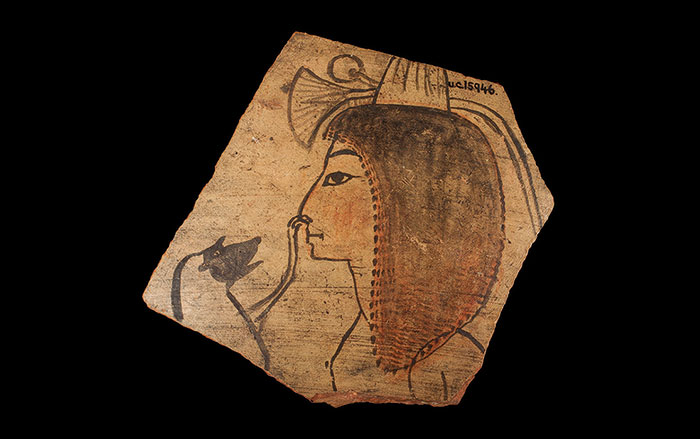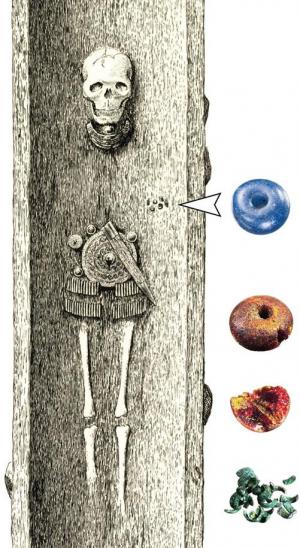
AARHUS, DENMARK—The chemical composition of 23 glass beads unearthed in Denmark was examined with plasma-spectrometry, and compared with the trace elements found in beads from Amarna in Egypt and Nippur in Mesopotamia. One of the beads, made of blue glass, had come from a woman’s Bronze Age burial that was excavated in 1880 at the Ølby site. She had been buried in a hollowed-out oak trunk wearing a belt disc, a string skirt with small bronze tubes, a bracelet made of amber beads, and a single blue glass bead. Science Nordic reports that the research team, made up of scientists from Moesgaard Museum, the National Museum of Denmark, Aarhus University, and the Institut de Recherche sur les Archéomatériaux in Orléans, France, matched this bead’s chemical signature to beads made 3,400 years ago in an Egyptian workshop. They now think that Egyptian glass beads, perhaps symbolizing the Egyptian sun cult, traveled north from the Mediterranean on the amber route, which carried Nordic amber south. Amber and glass beads have been found together at sites in the Middle East, Turkey, Greece, Italy, and Germany. To read more about these ancient Egyptian ornaments, see "Beads and Bead Making at Hierakonpolis."


